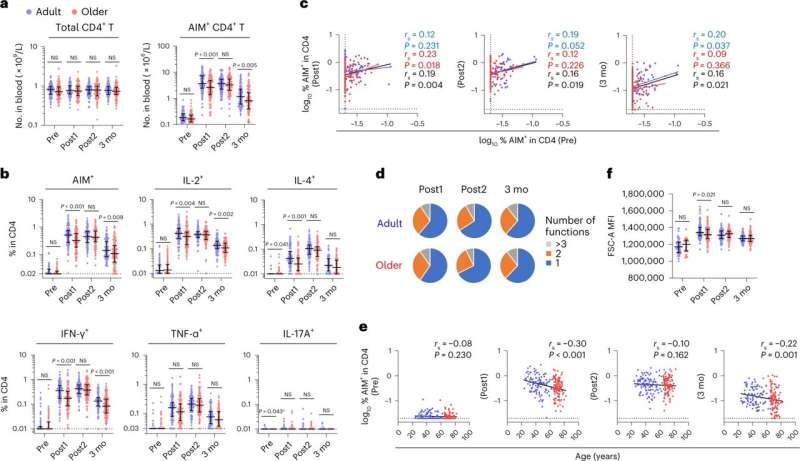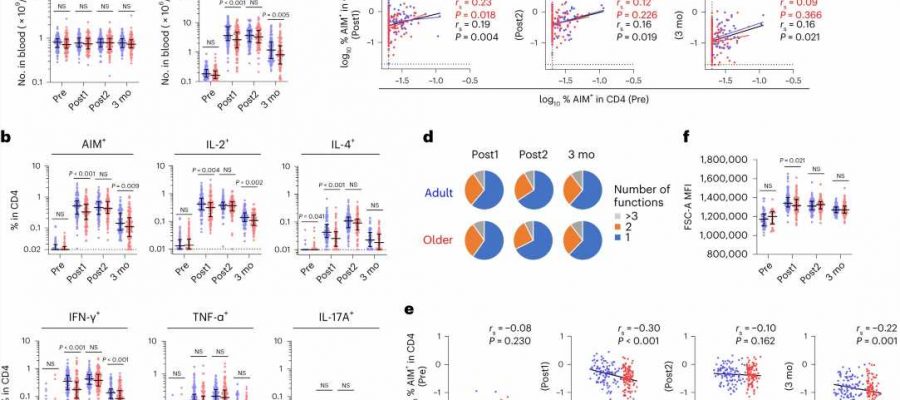
The Yoko Hamazaki Laboratory at CiRA has reported that the slower onset of helper T-cell responses in the elderly after COVID-19 vaccinations is associated with lower antibody production, killer T cell activation, and frequency of adverse reactions.
It is well known that immune functions generally decline with age (immunosenescence). However, it is not well understood how and to what extent aging impacts the responsiveness of T-cells—which play a central role in immune responses against viruses and cancer—to stimulation in vivo. In this study, the research team aimed to address these questions by taking advantage of the rare opportunity of a massive vaccination campaign, in which large groups of individuals are exposed to an identical antigen to stimulate their immune systems.
A total of 216 healthy volunteers, approximately half adults (aged <65 years) and the other half from the elderly population (aged 65 years or older), all of whom were vaccinated against COVID-19 (Pfizer's BNT162b2), were recruited to the study. The Hamazaki group examined the T-cell responses of these individuals after vaccination and assessed how they correlated with antibody production and adverse reactions.
The results showed that the helper T-cell response after vaccination in the elderly was characterized by slow onset but rapid contraction (waning of the immune response). In addition, vaccine-specific helper T-cells collected from the elderly expressed higher levels of PD-1 (programmed cell death-1), a protein that suppresses T-cell activation, suggesting that the response was more likely to be subdued.
Regardless of age, they also found that individuals with a slower onset of the helper T-cell response had lower maximum antibody titers and killer T-cell activation, but were also less likely to experience systemic adverse reactions.
These results suggest that the key to improving vaccine efficacy is to enhance the helper T-cell response and ensure sufficient cytokine production during the initial vaccination. Furthermore, it has become clear that there are not only age differences but also extremely large individual variations in the immune response induced by vaccines.
These results may be useful for developing more effective vaccine formulations for the elderly and other people with declining immune functions, as well as adjusting vaccination schedules to better suit individual immune status. Additional data will be collected through long-term observation to determine whether there are any age-related differences in the maintenance of immune memory.
Furthermore, a better understanding of the mechanisms underlying age and individual differences in the immune response will also help to improve other types of immunotherapies and to devise immune aging interventions (immune rejuvenation) in the future.
The results of this study were published online in Nature Aging on January 12, 2023.
More information:
Norihide Jo et al, Impaired CD4+ T cell response in older adults is associated with reduced immunogenicity and reactogenicity of mRNA COVID-19 vaccination, Nature Aging (2023). DOI: 10.1038/s43587-022-00343-4
Journal information:
Nature Aging
Source: Read Full Article
